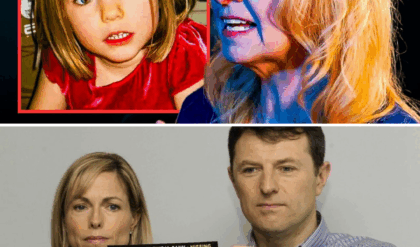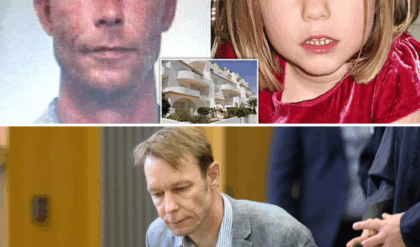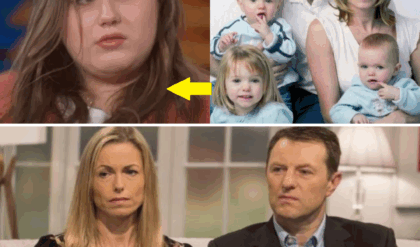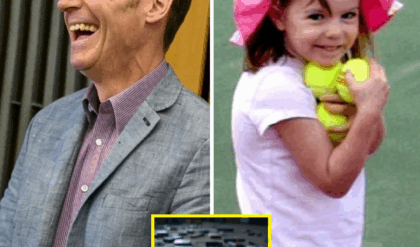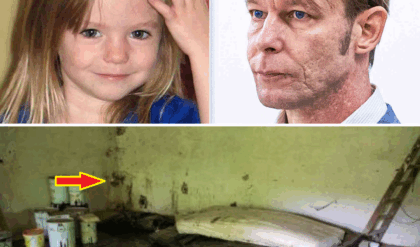In 2007, the disappearance of three-year-old Madeleine McCann from a holiday apartment in Praia da Luz, Portugal, captivated the world, sparking one of the most enduring mysteries in modern history. Nearly 18 years later, the case continues to grip public imagination, with new developments reigniting hope and controversy. Among the most startling is the claim by Julia Wendell, a 23-year-old Polish woman, who insists she is Madeleine McCann. In February 2025, Wendell resurfaced with what she calls “hidden evidence”—DNA test results that she alleges link her directly to the McCann family, specifically suggesting Gerry McCann could be her biological father. This article explores Wendell’s claims, the so-called evidence, the ongoing investigation, and the broader implications for a case that refuses to fade.
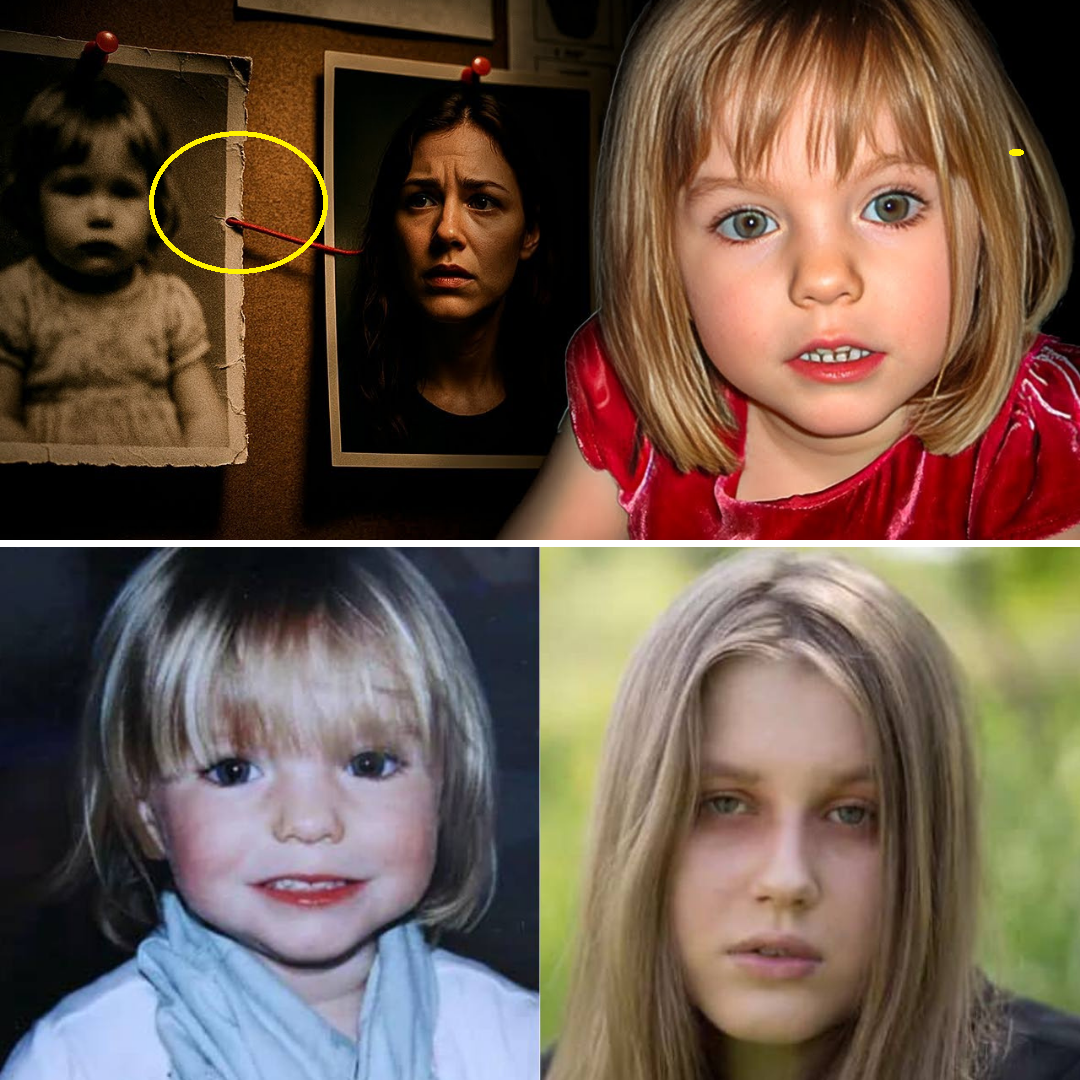
The Madeleine McCann Case: A Global Obsession
To contextualize Wendell’s claims, it’s crucial to revisit the events of May 3, 2007. Madeleine vanished from her family’s ground-floor apartment at the Ocean Club resort while her parents, Kate and Gerry McCann, dined 55 meters away with friends. The McCanns conducted regular checks on their three children—Madeleine and her two-year-old twin siblings—but at 10:00 PM, Kate discovered Madeleine’s bed empty. The disappearance triggered an unprecedented international response, with Portuguese police, supported by British and later German authorities, launching extensive searches. Early theories ranged from an accident to parental involvement, leading to the McCanns being named “arguidos” (suspects) in September 2007. This status was lifted in July 2008 due to insufficient evidence, and the Portuguese case was archived.
The McCanns, devastated yet determined, pursued private investigations, while media coverage transformed the case into a global phenomenon. In 2011, Scotland Yard launched Operation Grange, reclassifying the case as a “criminal act by a stranger,” likely an abduction or a burglary gone awry. In 2020, German authorities named Christian Brueckner, a convicted rapist and pedophile, as their prime suspect, asserting they had evidence Madeleine was dead, though they lacked proof to charge him. Despite exhaustive searches, including a May 2023 reservoir operation and a June 2025 land sweep near Praia da Luz, no definitive evidence has emerged, keeping the case in limbo.
Julia Wendell’s Emergence
Julia Wendell, also known as Julia Faustyna or Wandelt, entered this complex narrative in February 2023, when she launched an Instagram account, @iammadeleinemccan, claiming she was Madeleine McCann. The account quickly amassed over a million followers, drawn to her assertions of physical similarities with Madeleine, including a rare eye condition called coloboma, freckles, and facial features. Wendell shared vague childhood memories of “hot places with white buildings” and alleged she was abused by a man resembling a suspect sketch from the McCann case, possibly Martin Ney, a German child killer once linked to the disappearance. She questioned her origins, claiming her Polish family lacked photos of her mother’s pregnancy or her early years.
Her initial claims were met with skepticism. In April 2023, a DNA test, facilitated by private investigator Dr. Fia Johansson, confirmed Wendell was “100% Polish” with minor Russian and Lithuanian ancestry, ruling out any British or Irish heritage. The results aligned with her family’s account, supported by hospital records and childhood photos. Wendell apologized for the distress caused, particularly to the McCanns, but maintained she was trafficked to Poland as a child. Her persistence led to accusations of attention-seeking or mental health issues, with Polish charity Zaginieni przed Laty labeling her claims unreliable.
The “Hidden Evidence” Unveiled
In November 2024, Wendell reactivated her social media presence under @AmIJuliaWandelt, and by February 2025, she made a sensational claim: new DNA test results, submitted to an unnamed “world expert,” showed a “perfect match” with samples from the Praia da Luz crime scene. She alleged the analysis of hair and saliva indicated a 69.23% match with her DNA and suggested a parent-child relationship with Gerry McCann. Her representative, Surjit Singh Clair, stated that both the McCanns and Wendell’s Polish parents declined DNA tests, and the expert’s findings remained undisclosed. Wendell directed inquiries to Effective Media, a company that dissolved in 2015, raising doubts about the evidence’s legitimacy.
The so-called “hidden evidence” includes additional biometric analyses of Wendell’s eyes, teeth, and voice, which she claims corroborate her identity as Madeleine. However, several issues undermine her narrative. The expert’s identity and methodology are undisclosed, and no formal report has been published. If the DNA results were conclusive, they would likely be under police scrutiny, not confined to social media. Critics on platforms like X have pointed out that crime scene DNA, if available, would be trace evidence, and comparing it to Wendell’s without familial DNA is scientifically questionable. One user remarked, “If she’s Madeleine, why isn’t this on every news channel?” highlighting the lack of transparency.
Wendell’s earlier DNA test in 2023, conducted by a reputable lab, confirmed her Polish heritage, contradicting her recent claim of being “part British and part Irish.” Her refusal to publish the new results, coupled with the defunct status of Effective Media, fuels skepticism. Moreover, her history of claiming to be other missing children, such as Inga Gehricke and Acacia Bishop, suggests a pattern of false identities, though she insists her quest is for truth, not fame.
Physical and Circumstantial Claims
Wendell’s physical “evidence” centers on her alleged coloboma, a rare eye defect affecting 1 in 10,000 people, which Madeleine had in her right iris. However, close-up images of Wendell’s eyes show no obvious abnormality, and experts note that contact lenses or surgery can alter appearances. Her cited freckles and moles, while similar to Madeleine’s, are not unique, and facial recognition software from companies like Deep Impact and Ava-X in 2023 ruled out a match with 90% certainty. Wendell’s childhood memories of beaches and white buildings, potentially evocative of Portugal, are too vague to verify and could stem from media exposure or trauma.
Her allegations of abuse by a man resembling a McCann case suspect add intrigue but lack specificity. Martin Ney, the German pedophile she referenced, was investigated but cleared of involvement in Madeleine’s case. Wendell’s claim that her Polish family withheld birth records is countered by their provision of hospital documents and photos, which Polish police have verified. The age discrepancy—Madeleine would be 20 in 2025, while Wendell is 23—further complicates her narrative, as does her documented life in Poland, including school records and family testimony.
Wendell’s Personal Struggles
Wendell’s story is deeply tied to her personal challenges. Raised in Wroclaw, Poland, by her mother, Dorota Wandelt-Cholewinski, and stepfather, Piotr Cholewinski, she aspired to be a singer or model but faced significant hardships. She alleges childhood sexual abuse, which she links to her memory gaps and identity questions. In June 2022, a conversation with her grandmother about Madeleine’s case sparked her suspicions, leading her to confront her family. Their refusal to provide certain documents, she claims, fueled her belief she was adopted or trafficked.
Her 2023 media appearances, including on Dr. Phil, drew mixed reactions. Experts noted signs of stress, such as increased blinking when discussing DNA, but found no clear deception. Wendell later expressed regret to the BBC for the online furor, citing death threats and emotional toll, but her return in 2025 suggests an unresolved fixation. Her February 2025 arrest at Bristol Airport for allegedly harassing the McCanns—through voicemails, messages, and home visits—highlights the real-world consequences of her actions. An upcoming October 2025 court case for stalking may shed light on her motivations, with some X posts speculating about fabricated DNA results or attention-seeking behavior.
Impact on the McCann Investigation
Wendell’s claims, while unlikely to be true, have ripple effects. The McCann case, costing over £20 million, faces pressure to deliver results, and false leads like Wendell’s divert resources and cause emotional harm. Her 2023 assertions briefly spurred renewed interest, with Johansson claiming they prompted investigators to secure more funding. However, the McCanns have not publicly engaged with Wendell’s allegations, focusing on their ongoing search. A source close to the family in 2023 indicated openness to credible leads, but no evidence suggests they pursued Wendell’s claims.
The case remains active, with Christian Brueckner’s trial and forensic analyses offering hope for closure. Wendell’s actions have distressed her family and the McCanns, who endure renewed pain with each false claim. Her social media campaign underscores the power of platforms to amplify unverified narratives, with her million followers fueling speculation. Her arrest for stalking highlights the need for boundaries in public engagement with private tragedies.
Analyzing the Evidence
Wendell’s “hidden evidence” rests on unverified DNA results and circumstantial similarities. The absence of public disclosure, coupled with the McCanns’ refusal to participate, weakens her case. Her 2023 DNA test aligns with her Polish family’s account, and no new test has been independently corroborated. Allegations of trafficking lack concrete evidence, and Polish authorities have refuted her narrative. The coloboma and physical similarities are not conclusive, and facial recognition technology has debunked her claims. Her memories, potentially influenced by trauma or media, don’t align with Madeleine’s timeline.
The Broader Picture
Wendell’s story reflects the human need for answers in unresolved cases. Her trauma and identity struggles warrant empathy, but her methods have caused harm, complicating an already fraught investigation. The McCann case exposes challenges in cross-border cooperation and media influence, with speculation often outpacing evidence. As investigators pursue leads on Brueckner, Wendell’s claims remain a distraction, unlikely to resolve the mystery but emblematic of its enduring pull.
What Lies Ahead?
Wendell’s October 2025 court case may clarify her intentions, though skepticism about her DNA results persists. The McCanns, supported by Operation Grange, continue their search, undeterred by false leads. If Wendell’s evidence is legitimate, it could prompt a reevaluation, but without transparency, it remains a footnote. The Madeleine McCann mystery endures, with Wendell’s “hidden evidence” a poignant reminder of the case’s complexity and the pain it continues to inflict.

